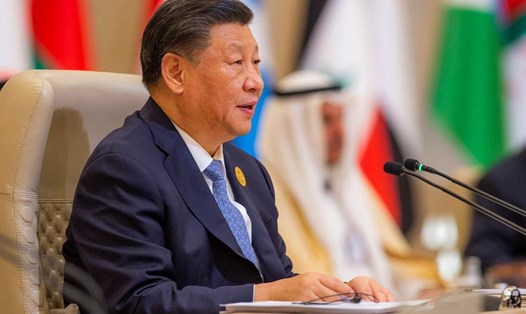In all 3 places he visited, Mr. Trump was welcomed very warmly and affectionately, all of which earned him many large-scale economic and trade cooperation agreements.
Both Saudi Arabia and the UAE have pledged to invest hundreds of billions of dollars in the US and spend hundreds of billions of dollars more on purchasing modern US weapons and military equipment, in line with Mr. Trump's psychology and desire for benefits under the slogan "America First".
All three have received not only the strengthening of economic cooperation and trade exchanges between them and the US but also a stronger security cooperation with the US. This is of strategic importance both now and in the long term for the three Gulf regions.
These results are not surprising because they could have been predicted in advance. Saudi Arabia, the UAE and Qatar are all traditional strategic military allies of the US, having had very good relationships with Mr. Trump personally since his first term, and are also places in the world with economic and trade relations very close to Mr. Trump personally.
It is not difficult to understand why Mr. Trump has to choose the first places to visit so that his first overseas trip after returning to power is the most favorable and successful. Looking at specific figures, the agreements Mr. Trump has reached with all three dynasties on direct investment in the US, on purchasing US products, especially modern US weapons and military equipment, are really impressive.
But signing an agreement is one thing, implementing it in practice is another thing. So far, many of the same agreements Trump has reached with the Gulf dynasties during his previous term have not been fully implemented.
There are two other things that are worth paying attention to during Mr. Trump's trip because they have great geopolitical significance and importance. The first is Mr. Trump's meeting with the new head of the regime in Syria and announcement of the lifting of sanctions and embargoes on Syria. Mr. Trump has proactively taken steps to encourage this government to turn to the US, as well as not allowing Turkey's monopoly to dominate Syria.
Second, Mr. Trump outlines policies for the Middle East, North Africa and the Gulf region. Accordingly, this policy is oriented towards economic benefits and regional stability, the abandonment of military intervention and "building a national state", dovishments with Iran and the Houthi forces in Yemen as well as attracting a new regime in Syria, while excluding Hamas and not aiming to form an independent Palestinian state anymore.
All the things that are easy to achieve, Mr. Trump has achieved with this trip abroad. But the most difficult thing to achieve is that Mr. Trump has not achieved it. That is to persuade Russian President Vladimir Putin to go to Istanbul (Türkiye) with him to negotiate with Ukrainian President Volodymyr Zelensky on a solution to end the conflict in Ukraine.








